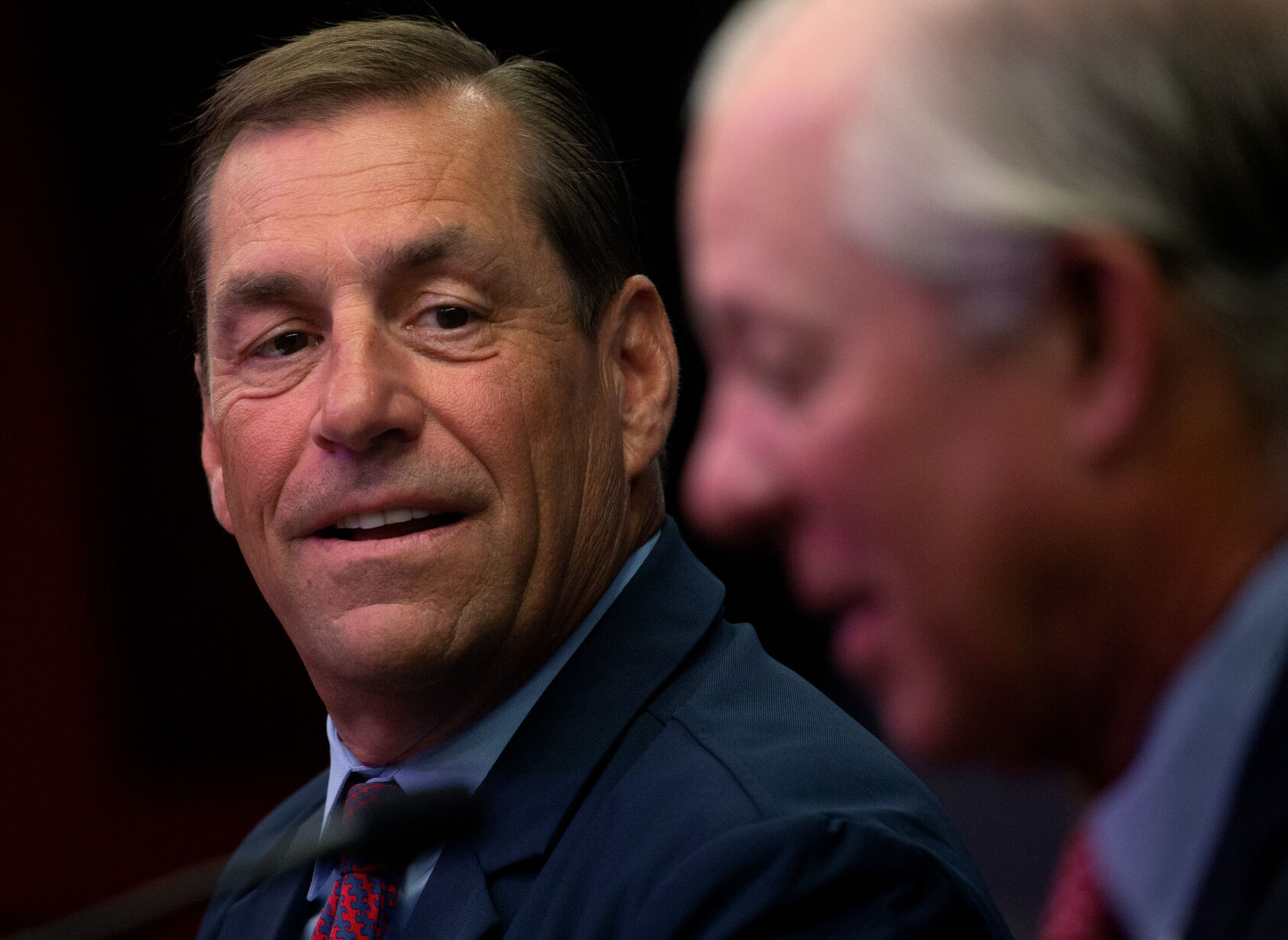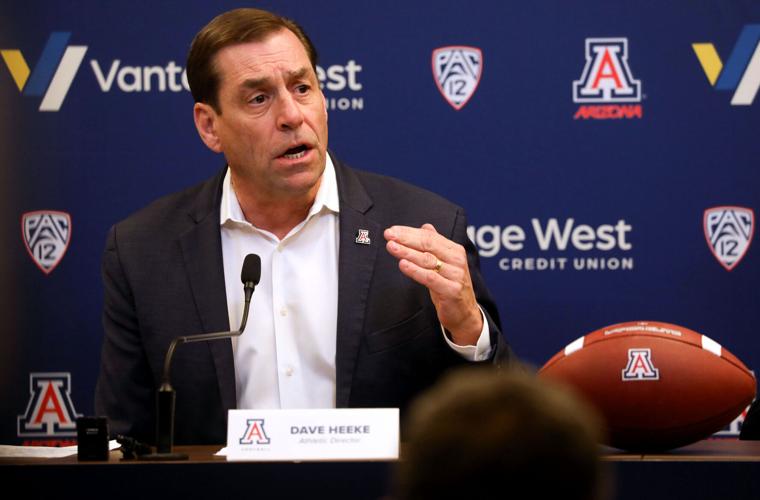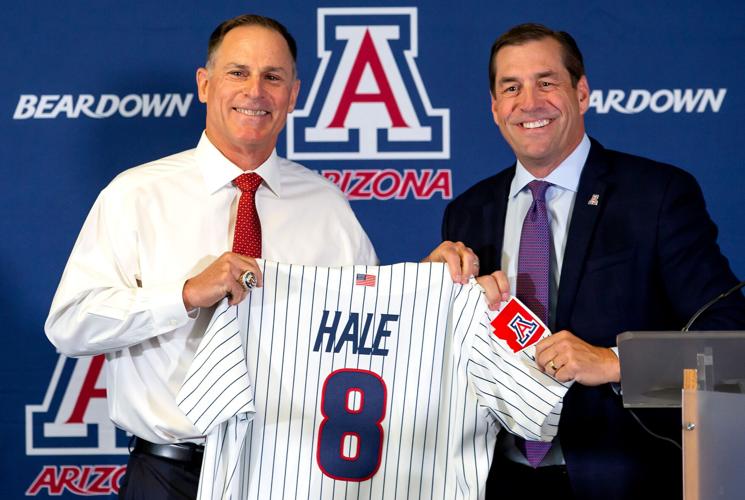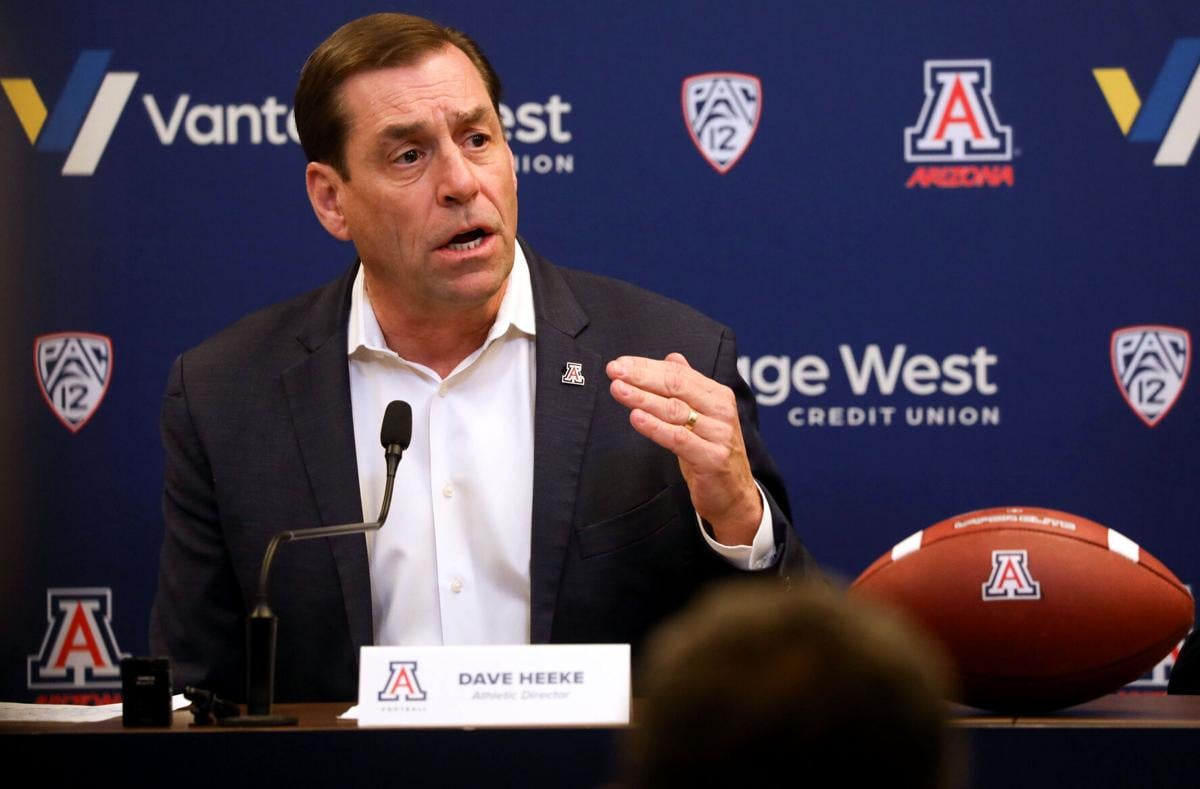Last Wednesday, Dave Heeke introduced Brent Brennan as Arizona’s new football coach. It was a joyous occasion. Aside from big victories on the field or court, I’d never seen Heeke look so happy.
Reflecting on that day now, I can’t help but wonder: Why was Heeke so blissful?

Michael Lev is a senior writer/columnist for the Arizona Daily Star, Tucson.com and The Wildcaster.
Was it because he’d succeeded in hiring the coach he wanted — the perfect coach for this place at this time — without interference from above? Or because, somewhere in the back of his mind, he knew he wouldn’t have to do this difficult, stressful, thankless, impossible-to-please-everybody job anymore?
I’m pretty sure it was the former. Word on the street is that Heeke’s dismissal Monday was unexpected.
But given a little time to process the pain and disappointment, one can imagine Heeke breathing a sigh of relief.
The job of the modern-day college athletic director is one that can wear a man down — even a good man like Dave Heeke.
I believe Heeke is a good man. I believe his heart was always in the right place.
But the AD job, nowadays, requires an elite businessman.
That’s what college sports has become — a big business. A cutthroat business. A kill-or-be-killed business.
Heeke, 60, still looks like he could block the plate or throw a body check; he was a baseball and hockey player in college. But I wouldn’t call him a killer in the way that word is used on Wall Street. He’s tough, he’s resolute, he’s principled. But a killer? Nah.
I’ve heard Heeke described as a bureaucrat. I don’t think that’s right either. The term “bureaucrat” has a negative connotation — like you’re just a cog in the system. Heeke led his department — overseeing hundreds of employees and student-athletes — for almost seven years.
Did he rub some people the wrong way along the way? Undoubtedly. But it’s hard to find leaders — the people who have to make the hard decisions — who are universally beloved.
The how it started/how it’s going for Heeke illustrates how much college sports have changed. His first foray into the “big time” came at Oregon in 1988. That was five years before the World Wide Web became a thing.

Arizona athletic director Dave Heeke walks the concourse at Arizona Stadium on Sept. 8, 2022.
When Heeke left Oregon in 2006, the athletic operating expenses for the university were about $44.7 million, according to the Knight-Newhouse College Athletics Database. In 2022, that figure was $140.6 million.
In just the last few years, NIL and the transfer portal have transformed major college sports. Coaches’ agents — who negotiate contracts for a living — are running the show and running circles around athletic directors.
It’s entirely possible — likely even — that NIL collectives will be brought in-house in the near future. When you combine that with NCAA president Charlie Baker’s proposal to create a new subdivision — and to have those richly resourced institutions place, at a minimum, $30,000 per athlete into a trust fund — you’re no longer looking for a traditional AD. You’re looking for a CFO.
Heeke has said it many times in public and in private: He’s old-school. He’s a traditionalist. He believes, plain and simple, that the purpose of college athletics is to provide opportunities for student-athletes.
UA baseball coach Chip Hale put it this way Tuesday: “His biggest mantra was, I don’t want to do anything that gets in the way of the student-athlete experience here.”
Those are noble ideals and objectives, and making that experience the best it can be is absolutely a big part of the job description for an AD. But sometimes — sadly — it feels like that’s becoming secondary.

‘Right time, right fit, right person,’ said UA athletic director Dave Heeke, right, of hiring former UA player Chip Hale to coach the baseball team in July 2021.
“We’re headed towards another sea change in college athletics, and I hope it’s the right kind of change that allows it to continue to prosper and serve in the way it’s done in the past,” Heeke told the Star in August 2023. “I’m not a proponent of paying players. I’m totally a proponent of sharing more resources and providing more opportunities. But I do think that would be the end of college athletics as we know it.
“There’s lots of opportunities and ways to provide more resources for our student-athletes to share in ways that are really positive. I think we’ve done that through the years. I’ve never seen more sharing and more growth for student-athletes. I was a student-athlete. My sons were student-athletes. I’ve seen it from a lot of different angles. There’s no better time to be a student-athlete than now.”
It might be the worst time to be an athletic director.
Ironically, Heeke’s removal came at a time when his approval rating among the public and pundits might have been at an all-time high. After negotiations with Jedd Fisch fizzled — more on that shortly — Heeke acted swiftly and boldly to hire Brennan. Heeke got it done in about 48 hours. By the end of the week, several of the football team’s best players announced that they were staying in Tucson. Heeke essentially had saved the day.
He faced blistering criticism just a few days earlier for failing to keep Fisch from leaving for Washington. How could Heeke go to Pullman for a men’s basketball game at a time like this? Why wasn’t the deal done in December?
I’ve heard several versions of events on how that all went down — and how it ultimately fell apart. Frankly, I’m not sure what — or whom — to believe. So we’ll leave that for another time.
I’m certain that the Fisch situation contributed to UA president Robert C. Robbins’ decision to remove Heeke. Dave wouldn’t cave. That might have cost him his job.

Arizona athletic director Dave Heeke, left, looks over at UA president Robert C. Robbins as he answers a question during a press conference about the school’s move to the Big 12 Conference in August 2023 at Arizona Stadium.
The biggest factor, unquestionably, was the university’s financial distress. The athletic department is responsible for a hefty portion of that. It’s been operating in the red — deeply in the red — for several years. All of that is expected to be laid bare at Thursday’s meeting of the Arizona Board of Regents.
Whether it’s day-to-day mismanagement, structural incongruity or the inflated cost of doing business, the department has been hemorrhaging money. Someone has to be held accountable. If you ask me, that person should be Robbins. Of course, a new president might have brought in his or her own AD anyway.
In assessing Heeke’s job performance — good: hiring Fisch, Brennan, Hale and Tommy Lloyd; bad: hiring Kevin Sumlin — you have to consider the context. He parachuted into a hornet’s nest.
Just a few months into his tenure, the FBI investigation into UA men’s basketball became public. The Orlando Bradford and Craig Carter sagas were ongoing. In 2020, the pandemic hit, shuttering athletics and cutting off all sources of revenue.
Heeke could have gutted the athletics communications department during that time as other schools, such as Vanderbilt, did. He refused, recognizing how shortsighted that move would have been.
Whoever the next AD is — most likely an external hire with Mike Candrea holding down the fort in the meantime — will have to make even thornier decisions.
It’s difficult to imagine UA athletics moving forward without cutting a handful of sports programs. It’s hard to picture Dave Heeke delivering that heartbreaking news to those coaches and student-athletes.
His is too big for such callousness.








